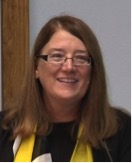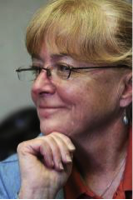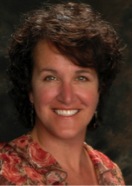Researchers have found that two treatments for Chronic Fatigue Syndrome have long term benefits for people affected by the condition.
The team from Oxford University, King’s College London and Queen Mary University of London were following up patients who took part in a study published in 2011, funded by the Medical Research Council. In that study they looked at four potential treatments for Chronic Fatigue Syndrome (CFS) and found that cognitive behavioural therapy
(CBT) and graded exercise therapy (GET) achieved better outcomes than standard medical care (SMC) and adaptive pacing therapy (APT) at one year.
In this study they contacted the people who took part in the original study to find out how they were fairing two and a half years after starting the treatments.
Three quarters of the original trial participants took part in the follow up. It showed that the improvements in fatigue and physical functioning seen at one year in the trial with CBT and GET were maintained in the long-term.
Professor Michael Sharpe from the University of Oxford said: 'The finding that participants who had cognitive behavioural therapy and graded exercise therapy had maintained their improvement over 2 years after entering the trial, tells us that these treatment can improve the long-term health of people with CFS.'
The team also found that participants who originally had CBT or GET were less likely to have sought additional therapy after the trial than those who originally had standard medical care alone or APT.
Dr Kimberley Goldsmith from the Institute of Psychiatry, Psychology & Neuroscience at King’s College London said: 'We found that participants who had originally been given SMC or APT appeared to be doing as well as those who had CBT or GET in the longer term. However as many had received CBT or GET after the trial, it does not tell us that these treatments have as good a long term outcome as CBT and GET.'
There were no significant differences between the four original treatment groups in the number reporting a long-term deterioration in their general health (around 1 in 10 of each group). This showed that there was no evidence that those who received CBT and GET were more likely to worsen in the long term.
Professor Peter White from Queen Mary University of London said: 'Finding no significant differences in the proportions getting worse over time is a reassurance for those who worry that some of these treatments might make things worse. But it is also a reminder that these treatments do not help everybody, and more research is needed into finding other treatments that help.'
See abstract of study at: http://www.thelancet.com/journals/lanpsy/article/PIIS2215-0366%2815...
The team from Oxford University, King’s College London and Queen Mary University of London were following up patients who took part in a study published in 2011, funded by the Medical Research Council. In that study they looked at four potential treatments for Chronic Fatigue Syndrome (CFS) and found that cognitive behavioural therapy
(CBT) and graded exercise therapy (GET) achieved better outcomes than standard medical care (SMC) and adaptive pacing therapy (APT) at one year.
In this study they contacted the people who took part in the original study to find out how they were fairing two and a half years after starting the treatments.
Three quarters of the original trial participants took part in the follow up. It showed that the improvements in fatigue and physical functioning seen at one year in the trial with CBT and GET were maintained in the long-term.
Professor Michael Sharpe from the University of Oxford said: 'The finding that participants who had cognitive behavioural therapy and graded exercise therapy had maintained their improvement over 2 years after entering the trial, tells us that these treatment can improve the long-term health of people with CFS.'
The team also found that participants who originally had CBT or GET were less likely to have sought additional therapy after the trial than those who originally had standard medical care alone or APT.
Dr Kimberley Goldsmith from the Institute of Psychiatry, Psychology & Neuroscience at King’s College London said: 'We found that participants who had originally been given SMC or APT appeared to be doing as well as those who had CBT or GET in the longer term. However as many had received CBT or GET after the trial, it does not tell us that these treatments have as good a long term outcome as CBT and GET.'
There were no significant differences between the four original treatment groups in the number reporting a long-term deterioration in their general health (around 1 in 10 of each group). This showed that there was no evidence that those who received CBT and GET were more likely to worsen in the long term.
Professor Peter White from Queen Mary University of London said: 'Finding no significant differences in the proportions getting worse over time is a reassurance for those who worry that some of these treatments might make things worse. But it is also a reminder that these treatments do not help everybody, and more research is needed into finding other treatments that help.'
See abstract of study at: http://www.thelancet.com/journals/lanpsy/article/PIIS2215-0366%2815...




 RSS Feed
RSS Feed